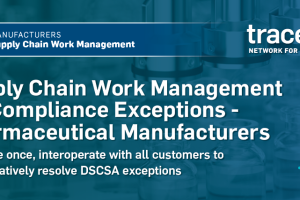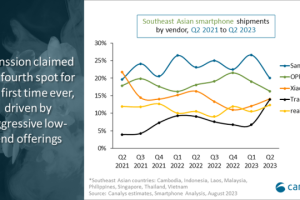Dr. Milind Antani, Lead, Pharma, Healthcare, Medical Device & Digital Health Practice; Lead, Nishith Desai Associates on the guidelines of telemedicine –
Today in the present scenario India is possibly the fore runner when it comes to lock down, though the number of cases is increasing. But the lock down has prevented certain activities. Now, this particular situation today has led to a very big challenge on access to healthcare. How a patient can approach a doctor for non-COVID type of illnesses. The only answer is to go digital.
India has few last miles to catch when it comes to telemedicine, because telemedicine is a concept where actually a patient can access doctor remotely for consultations, advice and certain related things which a patient requires. Unfortunately India does not have any legally binding telemedicine specific law. What we have, is that whatever type of services are being rendered, there are some laws, prescriptions, drugs and cosmetic technology, there is some data, and there is the Information Technology act and Data Privacy rules. Similarly for dispensing of medicines, there are some pharmacy legislations as well as Drugs and Cosmetics Act. Over and above, the most important legal angle was the Medical Council of India, and doctors are required to follow certain guidelines according to the Indian Medical Council Act and Medical Council Guidelines.
One significant challenge is because of these regulations and requirements in the medical council guidelines, our doctors in a particular state may not be in a position to advise patients sitting in other states that create some kind of ambiguity. The second challenge is on the awareness on part of the doctors and that is perhaps the biggest fear. I was a surgeon for 15 years before I became a lawyer 16 years ago. There is a fear of not knowing and committing some mistake, which will lead to some kind of liability when you do not know everything or anything, which is perfect.
I am extremely happy and overjoyed that government of India has come out with telemedicine guidelines on 25th of March, which is an excellent document, giving very good guidance and information to the doctors. However, whenever any guideline comes there is a challenge within this guideline—whether it is just a guideline which is a self regulatory or is it a legally binding guideline.
I will just touch on two or three important parts from the legal perspective with whether what exactly are the legal perspective of these telemedicine guidelines, which were released in March. And when you have some guidelines, there would be some kind of best practices that would have to be recommended in guidelines. And when you talk about base packages, what comes to do’s and don’ts? And when you think of don’ts, the most important thing which will come into telemedicine guidelines is you are sitting on a huge data. The data is going to be a medical record, which is sensitive information. Most important point, we need to understand on these particular guidelines, which are released by Board of Governors on supervision of Medical Council along with Niti Aayog, and is released by Ministry of Health is applicable to registered medical practitioners, which are the allopathic doctors.
This particular guideline does not cover other doctors. However Aayurveda Council and Homeopathy councils have come out with their own guidelines on similar lines, which is also applicable when there is telemedicine platform. It is a great initiative or a great start by the government to allow telemedicine activities. The second point is the binding nature. This telemedicine guideline is binding because it is coming under the Indian Medical Council Act. However, this is binding to the registered medical practitioners, which are allopathic doctors who are registered with Medical council of India with respect to the states. Now the challenge at here is what does it not cover? It is binding for doctors, but the challenge is it does not cover any other stakeholder because telemedicine is not just doctors. Telemedicine would require some kind of a technology platform, some kind of a bandwidth requirements. There could be a telemedicine center that could be a software provider, and there would be a hardware provider. So I will just quickly read up on one particular thing, which I think from law perspective, it is very important for all of us to understand and we are going to discuss how exactly this can be.
The guideline has specific exclusions which are very relevant from law perspective. The guidelines explicitly exclude the following specifications for hardware or software infrastructure building and maintenance. Data management systems involve standards and interoperability, using our digital technology to conduct surgical and invasive procedures remotely other aspects of telehealth such as research and evaluation of continuing education of well and health care workers, and does not provide for consultation outside the jurisdiction of India. So these are very important points from a legal point of view. These are the four or five important factors which are explicitly excluded. So anybody, any doctor or a service provider who is tying up with hospitals or doctors and providing such studies, they need to be aware of this purely from law because liability can arise. If there is a foreign doctor advising Indian patient, then it will be a breach on part of the person who is performing this particular service.
The guidelines have also categorized various medications into various lists, like A, B, O, and there is a prohibited list also. So there are certain drugs that cannot be prescribed. And the third and most important point is what you are talking, you must cover.
The most important thing is that you need to follow the recommendations, which are there in the guidelines.. Please be watchful on type of drug you are prescribing. Number two, what modality you are using, whether it is falling within the guidelines. The most important point here is that please ensure that the identity and the basic details and the history of the patient is taken down and recorded and the most important thing, don’t be under that impression that, “Hey, I am doing things online. There is no need to document everything”. Being a lawyer, I would say to the doctor in me, please document. This is the biggest problem I think the medical fraternity has. I hated documentation for 15 years, I realized the importance of documentation on 16th year when became a lawyer.
The data privacy norms need to be followed. And why are these don’ts important because guidelines very specifically mentioned that disease though it is binding, but all other prevailing laws which touch upon these kinds of services, it would it be applicable. There’s a data privacy law which would be applicable. Prescription things will be applicable. Drugs and Cosmetic Act will be applicable as in when he touches. However, the good part is the guidelines provided format or prescriptions we are going to touch upon how exactly the consents need to be taken. If patient is initiating, then implied consent is fine, but if as a doctor you are initiating the entire telemedicine consultation, there is a need for express consent also.



























